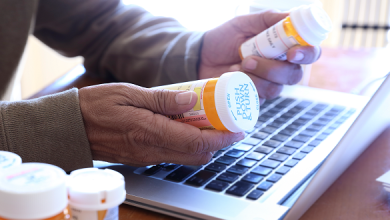Exercise and Addiction Recovery: A Powerful Combination for Healing

Recovery from drug or alcohol addiction is a challenging journey that demands a comprehensive approach to healing. While traditional addiction treatment programs in MA often focus on detoxification and counseling, integrating regular exercise into the recovery process can offer profound benefits that extend far beyond physical fitness.
Exercise and addiction recovery are deeply interconnected, with physical activity playing a crucial role in addressing both the physical and psychological aspects of substance use disorders. From alleviating withdrawal symptoms to enhancing mental health and rebuilding self-esteem, exercise serves as a powerful tool in the battle against addiction.
This article explores the multifaceted benefits of incorporating exercise in addiction recovery, highlighting how regular aerobic exercise, strength training, and overall physical activity contribute to a healthier, more balanced life.
The Role of Exercise in Addiction Recovery
Exercise in addiction recovery offers numerous benefits that support the healing process. Regular aerobic exercise and strength training are not only beneficial for physical health but also contribute significantly to mental health. Engaging in physical activity can help individuals in recovery from substance use disorders, including drug abuse, alcohol abuse, and other forms of addiction.
Incorporating exercise into addiction recovery routines can also provide a structured and positive outlet for coping with stress and negative emotions, which are common triggers for substance use. Establishing a consistent exercise regimen can create a sense of routine and stability, essential for individuals who may have experienced chaotic lifestyles during their addiction.
Additionally, exercise can serve as a productive distraction, helping to shift focus away from cravings and negative thought patterns, thereby enhancing overall resilience and commitment to the recovery journey.
Mental Health Benefits of Addiction Recovery Exercise

One of the most profound benefits of exercise in addiction recovery is its positive impact on mental health. Exercise helps reduce anxiety and depression, common co-occurring conditions in individuals with substance use disorders. By engaging in regular physical activity, individuals can experience an improvement in mood, self-esteem, and overall well-being.
Additionally, exercise promotes the release of endorphins, often referred to as “feel-good” hormones, which can help mitigate the psychological stress associated with drug or alcohol addiction recovery. This natural boost in mood can be crucial for maintaining motivation and resilience during the challenging recovery process.
Moreover, establishing a routine that includes regular exercise provides structure and a sense of purpose, which are essential for psychological stability and long-term recovery success.
Physical Health and Addiction Treatment
Physical exercise is crucial for restoring physical health damaged by substance use disorder. Regular exercise enhances cardiovascular health, strengthens the immune system, and improves sleep quality. These benefits are essential for individuals undergoing drug or alcohol addiction treatment, as they help the body recover from the detrimental effects of drug use.
Additionally, engaging in regular physical activity can help mitigate the physical side effects of drug or alcohol withdrawal, such as muscle tension, poor posture, and chronic pain. By incorporating aerobic activity and strength training into their routines, individuals in recovery can rebuild muscle strength, improve flexibility, and enhance overall physical resilience, making the journey to recovery more manageable and sustainable.
Relieving Stress and Withdrawal Symptoms
Exercise is an effective way to relieve stress and manage withdrawal symptoms during the addiction recovery process. Physical activity helps release endorphins, the body’s natural painkillers, which can act as a positive reinforcer, creating a natural high that combats cravings and reduces tension. This makes exercise a potential treatment to ease the withdrawal process.
Moreover, engaging in regular exercise helps to regulate cortisol levels, the hormone associated with stress, which can often be elevated during withdrawal. By lowering cortisol levels, exercise not only reduces stress but also mitigates the anxiety and irritability that often accompany the withdrawal process.
Additionally, structured physical activities provide a healthy routine and a sense of normalcy, helping individuals to stay focused and motivated in their recovery journey. This consistent routine can be especially beneficial during the early stages of recovery when the risk of relapse is highest.
Building Self-Esteem and Self-Confidence
Abusing drugs and alcohol often erodes self-esteem and self-confidence. Regular exercise can help rebuild these essential qualities by providing a sense of accomplishment and improving body image. As individuals in recovery achieve fitness goals, their self-worth and self-confidence grow, supporting their journey towards a healthy lifestyle.
Additionally, the structured routine of regular physical activity instills discipline and a sense of control, which are crucial for individuals reclaiming their lives from substance abuse. This renewed sense of self-discipline and control can significantly enhance their ability to resist cravings and make healthier choices, further boosting their confidence and reinforcing their commitment to recovery.
The Protective Effects of Regular Exercise
Studies, including animal and preclinical studies, have shown that regular exercise can have protective effects against relapse. Exercise helps the brain recover from the damage caused by substance abuse and enhances neuroplasticity, which aids in the healing process. This protective effect is crucial during different transitional phases of recovery.
Additionally, engaging in physical activity can increase motivation and provide a structured routine, which are essential for maintaining long-term sobriety. Exercise also acts as a healthy coping mechanism, diverting attention from cravings and reducing the risk of turning to substances during times of stress or emotional distress.
By incorporating regular exercise into their recovery plan, individuals can significantly enhance their resilience against relapse and build a more stable foundation for lasting recovery.
Improving Everyday Interactions and Social Support
Physical activity often involves social interactions, whether through group fitness classes, team sports, or outdoor activities. These interactions provide essential social support, helping individuals build healthy relationships and avoid the isolation that can lead to relapse. Improved social skills and everyday interactions are critical components of a successful recovery.
Additionally, engaging in group fitness activities or team sports can create a sense of belonging and camaraderie, which is crucial for individuals in recovery. These social settings foster connections with others who share similar goals and challenges, reinforcing the support network needed for a successful recovery journey. Building these relationships helps reduce feelings of loneliness and provides a source of encouragement and accountability.
The social skills developed through regular interaction in these activities can enhance overall communication and relational abilities, further aiding in the formation of healthy, supportive relationships outside of the exercise environment. This integration of social support into the recovery process strengthens the individual’s ability to maintain long-term sobriety and reinforces their commitment to a healthier lifestyle.
Enhancing Sleep Quality and Reducing Poor Posture
Substance use disorders often disrupt sleep patterns and lead to poor posture. Exercise can improve sleep quality, making it easier for individuals to maintain a regular sleep schedule, which is vital for recovery.
Additionally, physical activity helps correct poor posture, contributing to overall physical well-being. Regular exercise encourages deeper, more restorative sleep by regulating circadian rhythms and reducing symptoms of insomnia. This improvement in sleep can enhance mood and cognitive function, further supporting the recovery process.
Further, as individuals engage in exercise, they develop greater body awareness and muscular strength, which helps to alleviate the physical strain of poor posture. This dual benefit of better sleep and improved posture not only aids in physical recovery but also boosts overall energy levels and motivation, making the journey to a healthier lifestyle more achievable and sustainable.
Encouraging a Healthy Lifestyle
Incorporating regular exercise into addiction recovery fosters a more holistic and sustainable approach to health. By establishing a routine that prioritizes physical activity, individuals often find themselves more motivated to make other positive changes, such as adopting a balanced diet and avoiding harmful habits.
Exercise not only fills the time that might otherwise be spent in sedentary behaviors but also enhances overall life satisfaction and energy levels. This active lifestyle can lead to improved self-discipline, increased resilience, and a greater sense of purpose, all of which are crucial for long-term recovery.
Additionally, the benefits of physical exercise in reinforcing healthy habits contribute to the development of a robust support system, helping individuals stay engaged in their recovery journey and build a more fulfilling, addiction-free life.
Impact of Exercise in Recovery From Substance Use Disorders
The benefits of exercise in addiction recovery are extensive, offering a combination of physical, mental, and social advantages. From improving mental health and physical well-being to relieving stress and enhancing self-esteem, regular exercise is a powerful tool in the recovery process. As a positive reinforcer, exercise not only helps individuals manage withdrawal symptoms but also provides protective effects against relapse, supporting a sustainable, healthy lifestyle, free from the clutches of alcohol and drug use.





